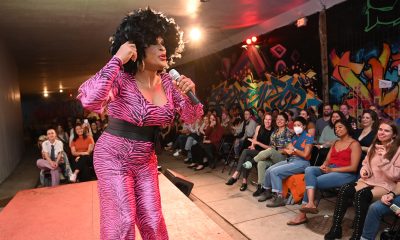Music & Concerts
REVIEW: Madonna’s joyful, nostalgic, chaotic ‘Celebration’
Fans got into the groove at Capital One Arena for two unforgettable nights
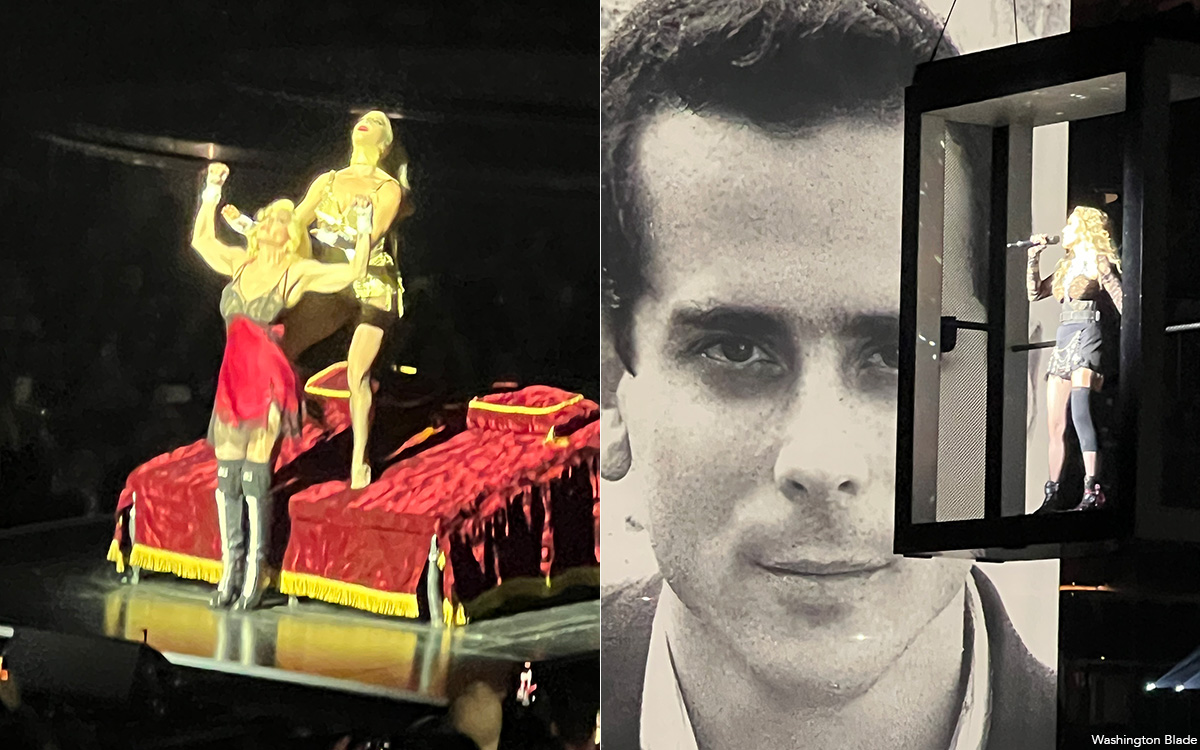
The entire two-plus hours of Madonna’s “Celebration Tour” seemed to build to a singular ecstatic moment when the pop and queer icon glided above the packed floor of Capital One Arena in a lighted box belting out her 1998 hit “Ray of Light.”
You could feel the arena move beneath your feet.
It’s difficult to capture in words the spectacle, sheer joy, and even sadness that characterize Madonna’s “Celebration Tour,” which played D.C. on Monday and Tuesday nights featuring 28 songs in seven “acts.” Let’s get her tardiness out of the way: Yes, she was late. Very late. The 8:30 p.m. start time turned into 10:30, which, considering the advancing age of her fanbase, proved a challenge for many on a school night. But the moment she hit the stage, all was forgiven.
Bob the Drag Queen was a capable, entertaining emcee, opening the show with a short monologue of praise and inviting the glitter/sequin/feather-adorned crowd to the celebration. With that, Madonna appeared on the tiered stage (a nod to her 1984 MTV Video Music Awards debut atop a wedding cake) and opened the show with the unexpected “Nothing Really Matters,” a surprising choice for a “greatest hits” show given it peaked at 93 on Billboard’s Hot 100 chart back in 1999 (though it did hit No. 1 on the dance chart that year). She wore a black kimono designed by Eyob Yohannes and a halo headpiece by House of Malakai, according to Harpers Bazaar. The look evoked her red kimono from the video.
From there, old school fans were treated to an ‘80s throwback and a recreation of Danceteria featuring club hits like “Everybody,” “Into the Groove,” and “Burning Up.”
The party anthem “Holiday” took a jarring turn as dancers were depicted dying on stage with Madonna using her coat to cover up one of them as the vibe quickly changed from intoxicating and fun to introspective and tearful as she transitioned to her 1986 ballad “Live to Tell.” In a show packed with highlights, this was the emotional core of the night. The song opened with two-story images of friends who had died of AIDS projected on giant screens around the stage; as the song progressed, the screens filled with more and more faces until the visages of hundreds of mostly gay men filled the arena with Madonna floating around them singing in tribute. It was a haunting moment and the most visually stunning sight I have ever witnessed in a concert. There wasn’t a dry eye in our row and I haven’t been able to get that image out of my mind for two days, a painful reminder of our community’s recent history and Madonna’s role as one of the few celebrities who stood with us in our darkest hour. She has more than earned our loyalty after fighting for AIDS awareness and funding and standing up to everyone from the Pope to the Boy Scouts advocating for our basic humanity.
After the emotional pull of that number, we needed some levity and Madonna delivered by pivoting to “Like a Prayer” featuring a giant carousel filled with her mostly shirtless dancers and a minute of chanting and a Sam Smith-Kim Petras “Unholy” snippet followed by a raucous version of the smash hit song.
Moving into act three, “Erotica” arrived with the dancers dressed as boxers in a ring with laser lights instead of ropes. There was an interlude featuring a dancer dressed as a Blond Ambition-era Madonna on a red velvet bed, another nod to an iconic Madonna moment, followed by “Justify My Love” with the scantily clad dancers writhing around their queen.
One of my personal highlights followed as Madonna’s daughter Mercy James killed it, skillfully playing piano as her mother sang “Bad Girl,” another surprise setlist inclusion from 1992’s “Erotica” album. Though the single didn’t fare well on the charts, the David Fincher-directed video remains one of her absolute best, depicting Madonna as a Manhattan business executive who drinks and smokes excessively and embarks on a series of one-night stands that leads to her murder. Christopher Walken co-stars in the video, which was influenced by Wim Wenders’s acclaimed “Wings of Desire.” Mercy is clearly no nepo-baby; she’s a talented pianist who wowed the crowd.
Next up was “Vogue,” which saw Madonna strutting the runway in a Jean Paul Gaultier-designed little black dress complete with conical bra and ending with a tribute to the ‘80s ballroom scene with Bob the Drag Queen in the role of Billy Porter from “Pose.”
Act V commenced with a rather drawn out recording of “The Beast Within,” the 1990 track that features spoken word passages from the Book of Revelation. She’s included this one on several tours. It wasn’t a hit song and we’ve seen it multiple times before so it felt unnecessary.
“Don’t Tell Me” saw the return of cowboy hats and line dancing, a spirited highlight of the night. Shortly after, Madonna slowed things down with a moody cover of “I Will Survive,” a poignant moment given her recent bout with a serious bacterial infection that led to the tour’s postponement.
But she was saving the best for last, as Act VI debuted with Madonna in a glittering Versace catsuit sprawled on a box singing “Bedtime Story” before rising to the rafters and tackling the aforementioned “Ray of Light.” It was an electric rendition that had the thousands of attendees on their feet.
So, what didn’t work? There were a few missteps, chief among them a misguided tribute to Michael Jackson at the end of the show that depicted silhouettes of Michael and Madonna dancing to “Billie Jean” and “Like a Virgin.” The comparison screamed “He’s the King of Pop and I’m the Queen” — it felt thirsty and superfluous. The whole “Queen of Pop” debate smacks of 20th century sexism, especially in an era of Taylor Swift and Beyonce billion-dollar tours. Madonna should be over that by now. Further undermining the comparison, Michael Jackson detested Madonna and was caught on an audio recording calling her a “nasty witch” and accusing her of being “jealous” of his popularity. She should cut this segment from the show.
One friend described the show as “chaotic,” which it was at times, but that stems from trying to cram a 40-year catalogue of hit songs into a two-hour show. Some of the show’s transitions were abrupt but, again, when you have as many hits as she does, you have to move fast.
Another issue was the lack of a live band, which she’s included on previous tours. I think most concert-goers paying hundreds of dollars for a ticket expect to see and hear a band. Instead, she relied on a recorded track for the music and some of the vocals. But Madonna’s mic was live and she did sing most of the show. As for the dance moves, Madonna has certainly slowed down from previous tours; her dancing isn’t nearly as athletic as in tours past. But she’s 65 years old and the leg brace she’s worn on stage clearly shows she’s suffering from so many years of entertaining us in high heels. She can leave the moves to her coterie of dancers and focus on singing.
She closed the show abruptly with a combo of “Bitch I’m Madonna” and a truncated “Celebration,” the tour’s namesake.
In all, a festive and nostalgic night with Madonna serving up hits and memories spanning decades for her adoring fans dressed in all sorts of tribute attire. If you’re on the fence about going, let me push you off. Go see her before she retires from touring. Yes, you’ll have to stay up late and indulge a few misguided moments. But our icons are aging and dying and no one can fill Madonna’s shoes. The show is a party, a walk down memory lane, and, yes, a Celebration.
Music & Concerts
Musical icons and newer stars to rock D.C. this spring
Brandi Carlile, Bad Bunny, Nicki Minaj, and more headed our way
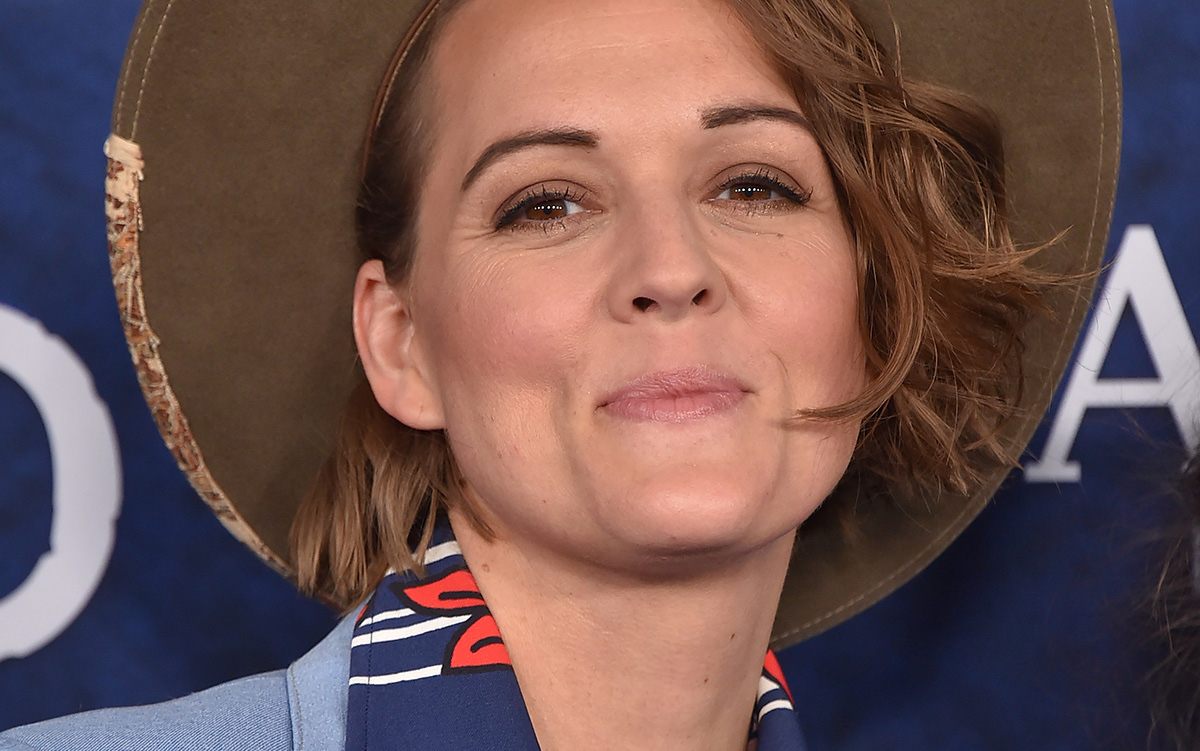
Bands and solo artists of all different genres are visiting D.C. this spring. Patti LaBelle and Gladys Knight will team up to perform at the Wolf Trap in June, and girl in red will play at the Anthem in April. Some artists and bands aren’t paying a visit until the summer, like Janet Jackson and Usher, but there are still plenty of acts to see as the weather warms up.
MARCH
Brandi Carlile plays at the Anthem on March 21; Arlo Parks will perform at 9:30 Club on March 23; Girlschool will take the stage at Blackcat on March 28.
APRIL
Nicki Minaj stops in D.C. at Capital One Arena as part of her North American tour on April 1; Bad Bunny plays at Capital One Arena on April 9 as part of his Most Wanted tour; girl in red performs at the Anthem on April 20 and 21; Brandy Clark plays at the Birchmere on April 25; Laufey comes to town to play at the Anthem on April 25 and 26.
MAY
Belle and Sebastian play at the Anthem on May 2; Chastity Belt performs at Blackcat on May 4; Madeleine Peyroux stops at the Birchmere on May 5; The Decemberists play at the Anthem on May 10; the rock band Mannequin Pussy performs at the Atlantis on May 17 and 18; Hozier plays at Merriweather Post Pavilion on May 17 as part of the Unreal Unearth tour.
JUNE
Patti LaBelle and Gladys Knight will sing soulful melodies at Wolf Trap on June 8; Joe Jackson performs at the Lincoln Theatre on June 10; the Pixies and Modest Mouse are teaming up to play at Merriweather Post Pavilion on June 14; Maggie Rogers plays at Merriweather Post Pavilion on June 16 as part of The Don’t Forget Me tour; Brittany Howard headlines the Out & About Festival at Wolf Trap on June 22; Sarah McLachlan plays at Merriweather Post Pavilion on June 27; Alanis Morissette performs at Merriweather Post Pavilion on June 29 and 30
Music & Concerts
Grammys: Queer women and their sisters took down the house
Taylor Swift won Album of the Year
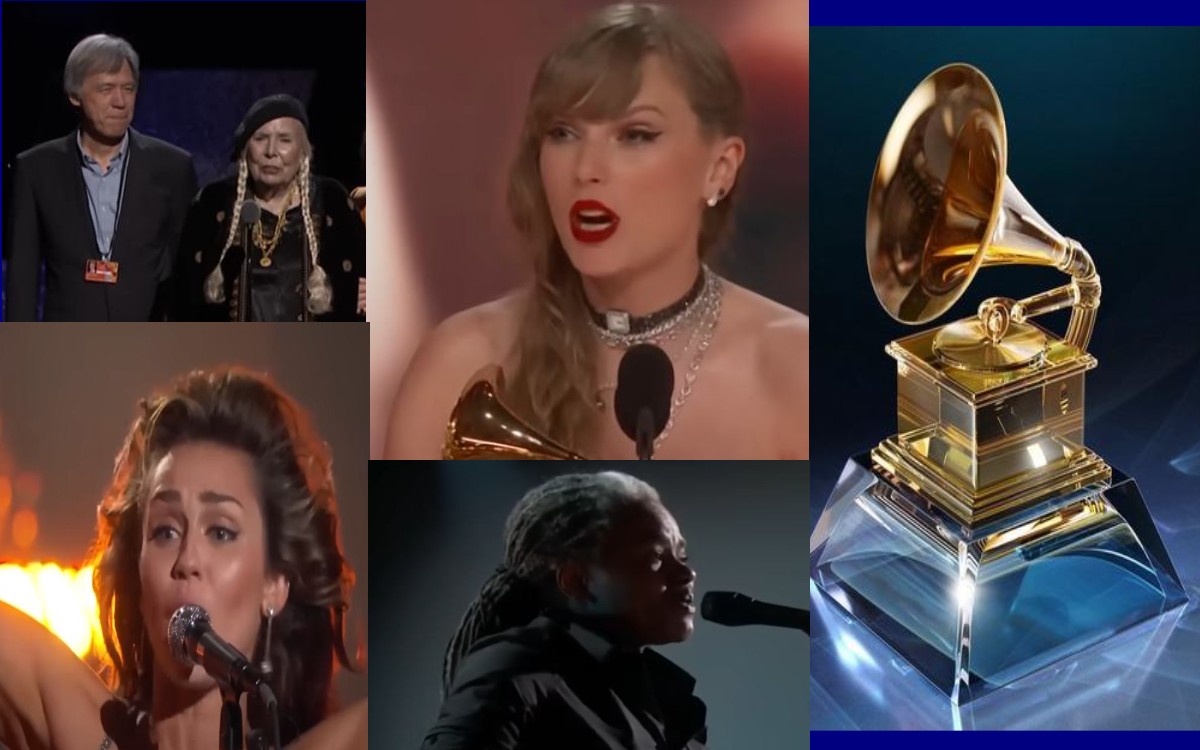
When the late, great Ruth Bader Ginsburg was asked when there will be enough women on the Supreme Court, her answer was simple: Nine. She stated: “I say when there are nine, people are shocked. But there’d been nine men, and nobody’s ever raised a question about that.” RBG did not attend the Grammy’s last night, but her spirit sure did. Women, at long last, dominated, ruled and killed the night.
Cher, in song a decade ago, declared that “this is a woman’s world,” but there was little evidence that was true, Grammy, and entertainment awards, speaking. In 2018, the Grammys were heavily criticized for lack of female representation across all categories and organizers’ response was for women to “step up.”
Be careful what you wish for boys.
The biggest star of the 2024 Grammys was the collective power of women. They made history, they claimed legacy and they danced and lip sang to each other’s work. Standing victorious was Miley Cyrus, Billie Eilish, SZA (the most nominated person of the year), Lainey Wilson, Karol G, boygenius, Kylie Minogue and Victoria Monét. Oh, yes, and powerhouse Taylor Swift, the superstar from whom Fox News cowers in fear, made history to become the first performer of any gender to win four Best Album of the Year trophies.
In the throng of these powerful women stand a number of both LGBTQ advocates and queer identifying artists. Cyrus has identified as pansexual, SZA has said lesbian rumors “ain’t wrong,” Phoebe Bridgers (winner of four trophies during the night, most of any artist) is lesbian, Monét is bi and Eilish likes women but doesn’t want to talk about it. Plus, ask any queer person about Swift or Minogue and you are likely to get a love-gush.
Women power was not just owned by the lady award winners. There were the ladies and then there were the Legends. The first Legend to appear was a surprise. Country singer Luke Combs has a cross-generational hit this year with a cover of Tracy Chapman’s “Fast Car.” When originally released, the song was embraced as a lesbian anthem. When performing “Fast Car,” surprise, there was Chapman herself, singing the duet with Combs. The rendition was stunning, sentimental and historic.
Chapman, like many of the night’s female dignitaries, has not been public with her sexuality. Author Alice Walker has spoken of the two of them being lovers, however.
The legend among legends of the night, however, was the one and only Joni Mitchell. Not gay herself, she embodies the concept of an LGBTQ icon, and was accompanied by the very out Brandi Carlile on stage. On her website, Mitchell’s statement to the LGBTQ community reads, “The trick is if you listen to that music and you see me, you’re not getting anything out of it. If you listen to that music and you see yourself, it will probably make you cry and you’ll learn something about yourself and now you’re getting something out of it.”
Mitchell performed her longtime classic “Both Sides Now.” The emotion, insight and delivery from the now 80-year old artist, survivor of an aneurism, was nothing short of profound. (To fully appreciate the nuance time can bring, check out the YouTube video of a Swift lookalike Mitchell singing the same song to Mama Cass and Mary Travers in 1969.) In this latest rendition, Mitchell clearly had an impact on Meryl Streep who was sitting in the audience. Talk about the arc of female talent and power.
That arc extended from a today’s lady, Cyrus, to legend Celine Dion as well. Cyrus declared Dion as one of her icons and inspirations early in the evening. Dion appeared, graceful and looking healthy, to present the final, and historic, award of the night at the end of the show.
Legends did not even need to be living to have had an effect on the night. Tributes to Tina Turner and Sinead O’Conner by Oprah, Fantasia Barrino-Taylor and Annie Lennox respectively, proved that not even death could stop these women. As Lennox has musically and famously put it, “Sisters are doing it for themselves.”
Even the content of performances by today’s legends-in-the-making spoke to feminine power. Eilish was honored for, and performed “What Was I Made For?,” a haunting and searching song that speaks to the soul of womanhood and redefinition in today’s fight for gender rights and expression, while Dua Lipa laid down the gauntlet for mind blowing performance with her rendition of “Houdini” at the top of the show, Cyrus asserted the power of her anthem “Flowers” and pretty much stole the show.
Cyrus had not performed the song on television before, and only three times publicly. She declared in her intro that she was thrilled over the business numbers the song garnered, but she refused to let them define her. As she sang the hit, she scolded the audience, “you guys act like you don’t know the words to this song.” Soon the woman power of the room was singing along with her, from Swift to Oprah.
They can buy themselves flowers from now on. They don’t need anyone else. Cyrus made that point with the mic drop to cap all mic drops, “And I just won my first Grammy!” she declared as she danced off stage.
Even the squirmiest moment of the night still did not diminish the light of women power, and in fact, underscored it. During his acceptance of the Dr. Dre Global Impact Award, Jay-Z had a bone to pick with the Grammy voters. He called out the irony that his wife Beyoncé had won more Grammys than any other human, but had never won the Best Album of the Year. Yeah, what’s with that?
But then, it brought additional context ultimately to the fact that the winner of the most Grammys individually … is a woman. And to the fact that the winner of the most Best Album of the Year awards … is a woman.
Hopefully this was the night that the Grammys “got it.” Women are the epicenter of The Creative Force.
Will the other entertainment awards get it soon as well? We can hope.
Most importantly, in a political world where women’s healthcare is under siege. Will the American voters get it?
A little known band named Little Mix put it this way in their 2019 song “A Woman’s World.”
“If you can’t see that it’s gotta change
Only want the body but not the brains
If you really think that’s the way it works
You ain’t lived in a woman’s world
Just look at how far that we’ve got
And don’t think that we’ll ever stop…”
From Grammy’s mouth to the world’s ear.
Music & Concerts
Janet Jackson returning to D.C, Baltimore
‘Together Again Tour’ comes to Capital One Arena, CFG Bank Arena
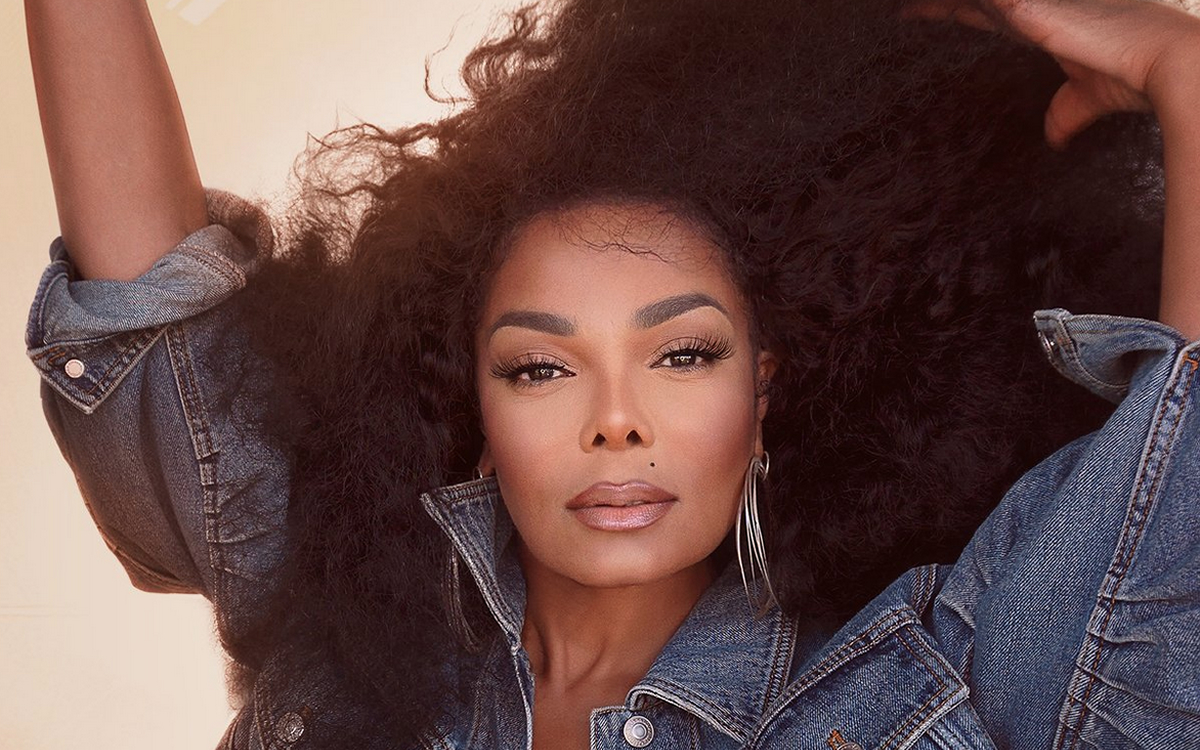
Pop icon Janet Jackson announced this week an extension of her 2023 “Together Again Tour.” A new leg of the tour will bring Jackson back to the area for two shows, one at D.C.’s Capital One Arena on Friday, July 12 and another at Baltimore’s CFG Bank Arena on Saturday, July 13.
Tickets are on sale now via TicketMaster. LiveNation announced the 2023 leg of the tour consisted of 36 shows, each of which was sold out. The 2024 leg has 35 stops planned so far; R&B star Nelly will open for Jackson on the new leg.
Jackson made the tour announcement Tuesday on social media: “Hey u guys! By popular demand, we’re bringing the Together Again Tour back to North America this summer with special guest Nelly! It’ll be so much fun!”
-

 State Department4 days ago
State Department4 days agoState Department releases annual human rights report
-

 South America2 days ago
South America2 days agoArgentina government dismisses transgender public sector employees
-

 District of Columbia2 days ago
District of Columbia2 days agoCatching up with the asexuals and aromantics of D.C.
-

 Politics4 days ago
Politics4 days agoSmithsonian staff concerned about future of LGBTQ programming amid GOP scrutiny



